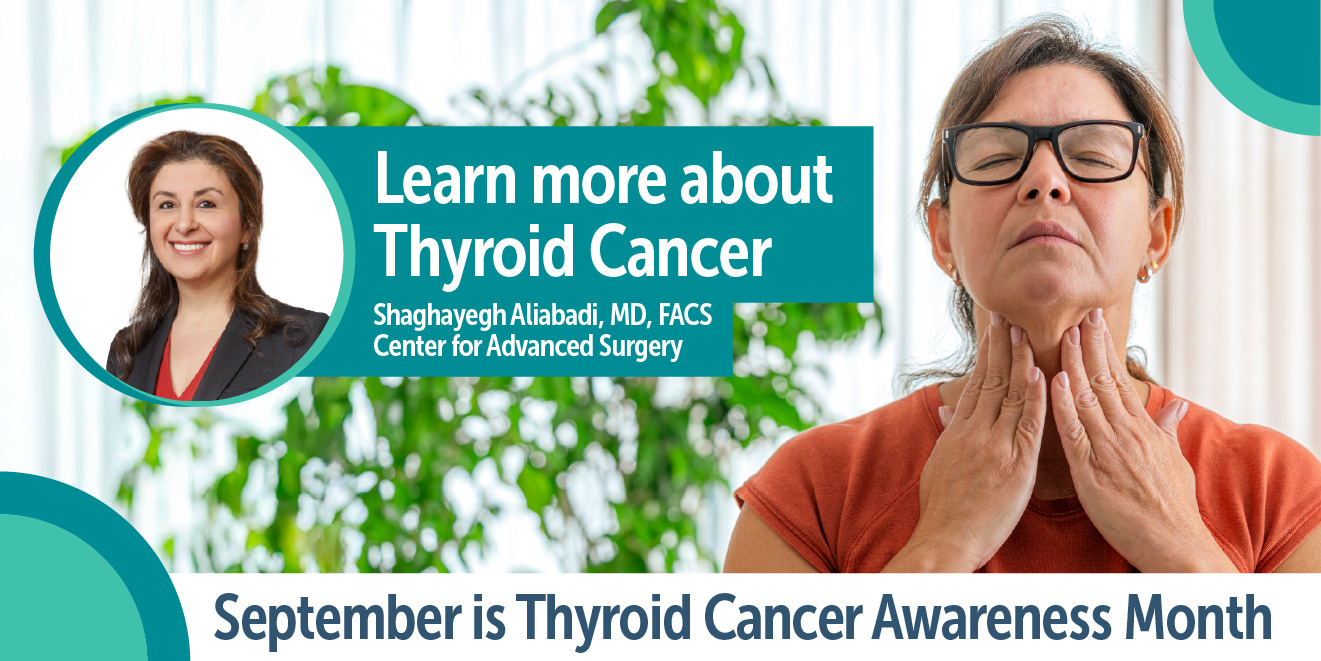
September is Thyroid Cancer Awareness Month
If your thyroid isn’t working properly, neither are you! The thyroid is a butterfly shaped gland located at the base of the neck that helps make several important hormones that control heart rate, body temperature, metabolism, and the amount of calcium in the blood.
Thyroid cancer is the 8th most common type of cancer in the US. Fortunately, 90% of thyroid cancers are not aggressive and are slow growing, with an excellent prognosis of 90-95% survival at 10 years. After a steady increase of thyroid cancer rates over three decades, the number of new cases per year began declining in 2015. In 2024, around 44,000 cases of thyroid cancer were diagnosed.
Here are some facts about thyroid cancer:
- People diagnosed with thyroid cancer are often younger than those with other adult cancers.
- Women are two and a half times more likely to develop thyroid cancer than men.
- Only a small number of thyroid cancers are linked to hereditary conditions. Most patients with thyroid cancer do not have a family history.
- Exposure to high dose radiation as a result of medical treatment or radiation fallout can increase the risk of thyroid cancer.
Symptoms of thyroid cancer can be subtle.
Thyroid cancer often appears silently. Nodules may form with no symptoms and thyroid function blood tests can come back normal, even when cancer is present. At other times, a thyroid cancer nodule can create a lump in the front of the neck. If the nodule is large enough, it can cause changes in swallowing, voice hoarseness, and pressure in the neck. “This wide range of thyroid cancer presentation is why it’s so important to have your healthcare provider examine your neck for the presence of nodules during your annual check-up,” says Dr. Shaghayegh Aliabadi, MD, FACS, endocrine surgery specialist at The Oregon Clinic.
Multiple treatment options for thyroid cancer.
Recent advancements in screening and treatment have kept thyroid cancer death rates very low. Treatment most often includes a combination of surgery, thyroid hormone replacement, and sometimes radiation therapy.
Dr. Aliabadi shares, “Treating thyroid cancer is becoming more and more nuanced. It’s important to have an experienced multi-disciplinary team involved in your care. Decisions regarding treatment are often made jointly between doctors and patients, with the goal to provide optimal individualized care.”
An experienced endocrine specialist is key to successful treatment.
Research shows that safe successful treatment of thyroid cancer is tied to the experience of the surgeon. The Oregon Clinic has expert physicians who are trained in treating thyroid cancer in our Endocrine Surgery and Ear, Nose, & Throat specialties. Click here to learn more about our endocrine care.
Patient resources: